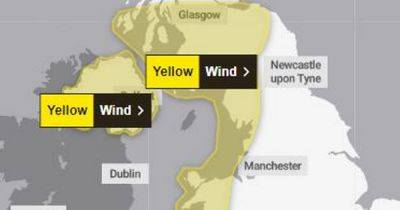'Do not touch' warning issued over 'exploding' plant that will spread fast across UK this spring
A warning has been issued over an 'exploding' plant which is spreading fast across the UK. Brits are being urged 'do not touch' the highly invasive plant if spotted as it can cause widespread environmental issues.
The Himalayan balsam is an attractive-looking pink plant native to the Himalayas, which was first brought into Europe in the first half of the 19th century. The herbaceous plant is now distributed across most areas of Britain and is believed to be one of the most 'dangerous' species.
Often called 'touch me not balsam', Himalayan balsam is becoming an environmental and commercial issue in many parts of the UK. Each Himalayan balsam plant produces more than 2,500 seeds which can remain viable for up to two to three years. When the seed pods mature they explode when touched, scattering the seeds as far as seven metres away.
READ MORE: 15-day warning to anyone getting a new mortgage as millions 'at risk'
Environmental experts from Japanese Knotweed Ltd are now warning that the plant is 'one to watch' as the widespread growth of Himalayan balsam infestations can hit landowners and land managers hard.
As more environmental trusts struggle to contain or remove the plant, tighter controls are required with effective removal methods being deployed to stop the rapid spread that is expecting to see this year due to the wetter climate.
Himalayan balsam is listed under Schedule 9 of the Wildlife and Countryside Act 1981 with respect to England and Wales. As such, it is an offence to plant or otherwise allow this species to grow in the wild and was included in Scotland by the end of 2011.
All seeds germinate in early spring, and their stems which are predominantly green will turn red as the year progresses. Flowering is








